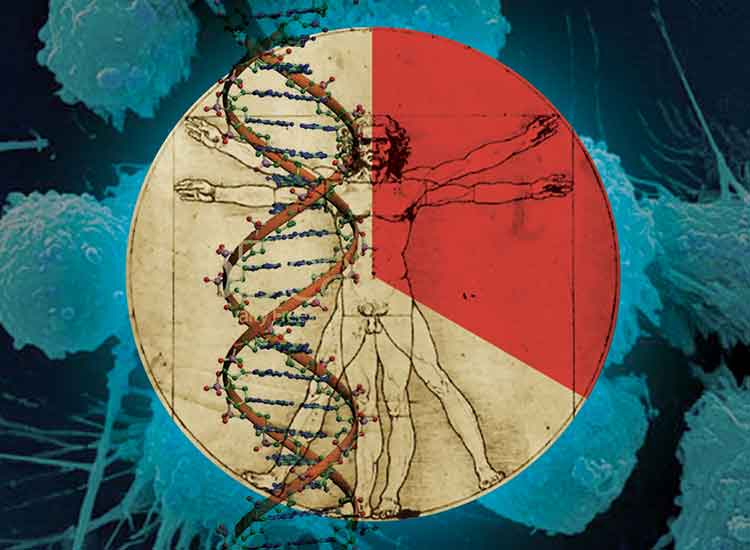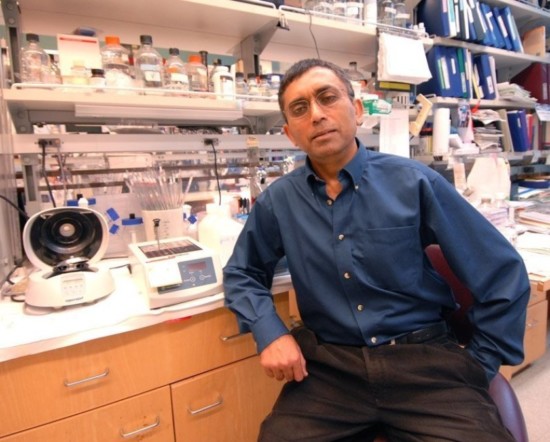Calls for Ukraine
Calls for Europe
Calls for USA

Most people no longer produce the Siglec-12 protein, but those who still do, are at greater risk of developing cancer in the advanced stages.
Compared to chimpanzees, our closest evolutionary relatives, humans have more chances to develop carcinomas, a type of tumor that includes prostate, breast, lung, and colorectal cancer. Even if risk factors such as genetic predisposition or smoking are absent.

Recent research of the UC San Diego School of Medicine and Moores Cancer Center suggests that an evolutionary genetic mutation, unique only to humans, increases the chance of advanced cancer.
«At some point during human evolution, the SIGLEC12 gene — and more specifically, the Siglec-12 protein it produces as part of the immune system — suffered a mutation that eliminated its ability to distinguish between ’self’ and invading microbes, so the body needed to get rid of it,» said senior author Ajit Varki, MD, Distinguished Professor at UC San Diego School of Medicine and Moores Cancer Center. «But it’s not completely gone from the population — it appears that this dysfunctional form of the Siglec-12 protein went rogue and has now become a liability for the minority of people who still produce it.»
When examining samples of normal and malignant tissue, the scientists noticed that around 30% of people, who still produce the Siglec-12 protein, are more than twice as likely to develop advanced cancer, as people who do not produce it.
Over time, our bodies started to remove genes that encode such dysfunctional proteins, and around two-thirds of the world’s population stopped producing Siglec-12. While this gene still exists in humans, it was long considered to have no function, and little research has been done in the two decades since it was discovered. In the meantime, chimpanzees still produce Siglec-12 protein.

When the research team started detecting the Siglec-12 in non-cancerous tissue samples using an antibody against the protein, around 30% of the samples were positive, as scientists expected from the genetic information. But the majority of advanced cancer tissue samples from the same group of people were positive for Siglec-12.
In patients with advanced colorectal cancer, scientists found that more than 80% of them had a functional form of the SIGLEC-12 gene, and these patients had worse results than a minority of patients without it.
«These results suggest that the minority of individuals who can still make the protein are at much greater risk of having an advanced cancer,» said Nissi Varki, MD, professor of pathology at the University of California, San Diego School of Medicine.
Scientists also confirmed their discovery in mice by injecting tumor cells designed to produce the Siglec-12 protein. The resulting cancers grew much faster compared to the control of tumor cells without a functioning Siglec-12.
The research team took a step forward by developing a simple urinalysis that can be used to determine the presence of the Siglec-12 protein:
«We might also be able to use antibodies against Siglec-12 to selectively deliver chemotherapies to tumor cells that carry the dysfunctional protein, without harming non-cancerous cells» concluded Ajit Varki.
Sources:
https://www.ucsd.edu/
www.sciencedaily.com/releases/2020/12/201209094241.htm
Please rate the work of MedTour
